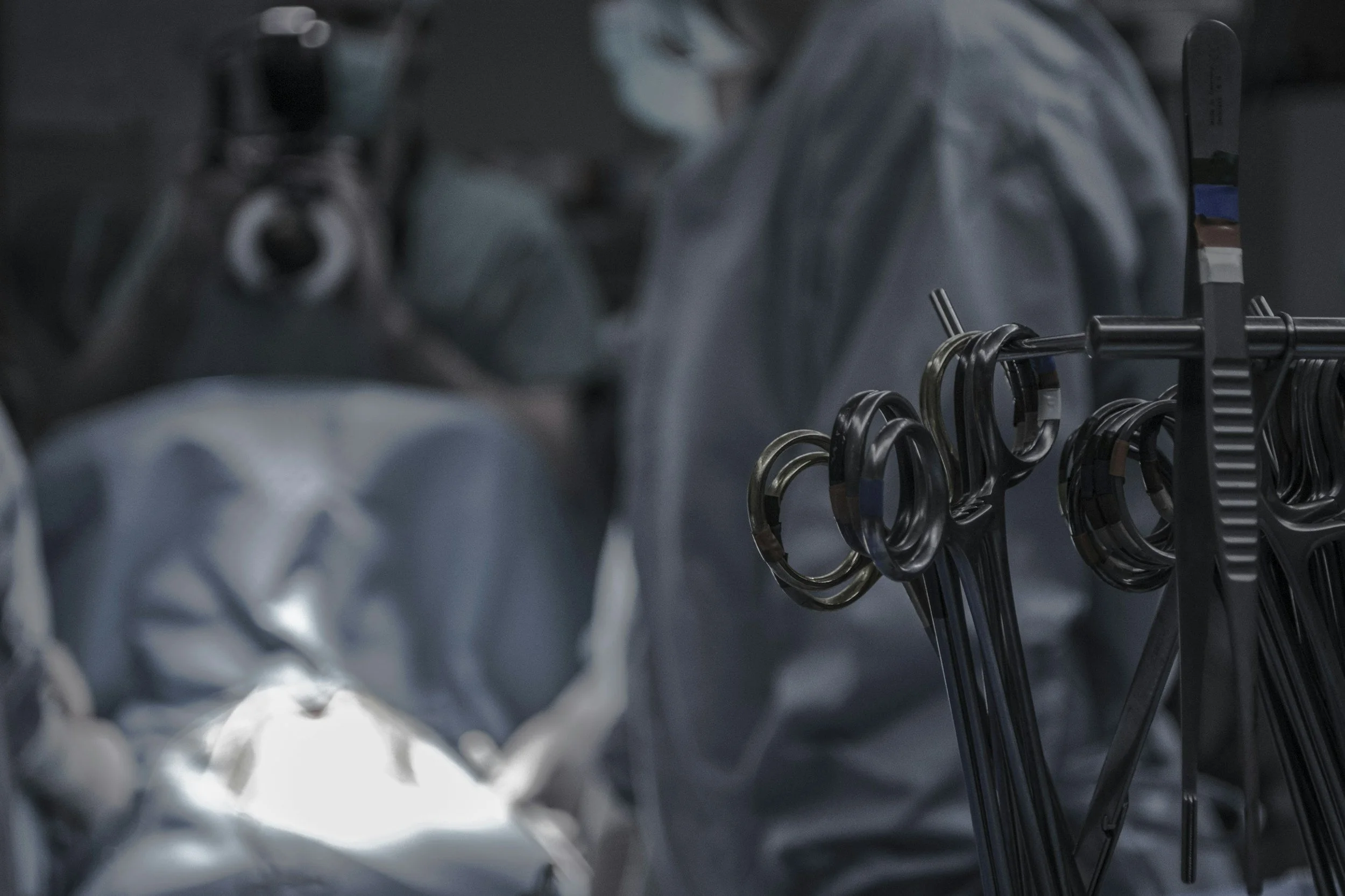
Frequently Asked Questions
Abortion
-
With a medical abortion (abortion pill), you will experience cramping and heavy bleeding that can last from 4 - 12 hours, sometimes longer. This can be more or less intense depending on many factors, such as how far along the you are. Some women describe the pain as being similar to intense period cramps while others compare it to early labor contractions. With the surgical procedure, you will be given a sedative to reduce anxiety as well as a local anesthetic administered to the cervix. You may still feel some discomfort, pressure, and pain.
Cleveland Clinic. (2024, January 16). Medical abortion. My Cleveland Clinic Health Library. https://my.clevelandclinic.org/health/treatments/21899-medical-abortion
Pietrangelo, A. (2025, July 10). Do medication or procedural abortions hurt? What to expect with the pill or procedure. Healthline. https://www.healthline.com/health/do-abortions-hurt
-
It is possible for the fetus/embryo to feel pain during the abortion. Pain receptors begin developing at 4 weeks. The embryo/fetus is growing rapidly between 1 and 20 weeks which allows response to touch and sensation. At 8 weeks they respond to touch by reflex and by 20 weeks, all of the physiological connections are in place for the fetus to feel pain. New research has come to light that suggests a type of pain or discomfort could likely be felt from 12 weeks on.
Derbyshire SW, Bockmann JC. Reconsidering fetal pain. Journal of Medical Ethics 2020;46:3-6.
Thill B. Fetal Pain in the First Trimester. The Linacre Quarterly. December 2021. doi:10.1177/00243639211059245
-
The morning-after pill is a method used to prevent pregnancy. It may cause a very early abortion if fertilization has already occurred. The most common morning-after pill is known as Plan B. It must be taken within 72 hours after unprotected sex. There are side effects and risks with the morning-after pill, (see below).
The abortion pill is a method used to terminate an early pregnancy. The two abortion pills typically used are Mifepristone and Misoprostol. It must be taken within 70 days of the start of your last menstrual period. There are side effects and risks with the abortion pill, see (abortion page)
Plan B (levonorgestrel: oral tablet) side effects:
Very common (10% or more):
Irregular menstrual bleeding (67%), ovarian cyst (31.2%), vulvovaginitis (20.2%), amenorrhea (18.4%), (13.8%), vaginal infections (13.6%), (11.9%), breast tenderness (10.7%), nausea (up to 23.1%), abdominal/pelvic pain (up to 22.6%), fatigue (16.9%), headache (up to 16.8%), dizziness (11.2%), acne/seborrhea (15%)Common (1% to 10%):
Dysmenorrhea, breast pain/discomfort, upper genital tract infection, pelvic inflammatory disease, endometritis, dyspareunia, diarrhea, vomiting, partial/complete IUD expulsion, weight increased, migraine, depression, mood changes, mood swings, decreased libido, nervousness, alopecia, hirsutism, back painUncommon (0.1% to 1%):
Uterine spasm, cervicitis, edema, change in body weight, pruritus, eczema, pigmentation changes/hyperpigmentationRare (less than 0.1%):
Uterine perforation, rash, urticariaVery rare (less than 0.01%):
Face edemaFrequency not reported:
Breast enlargement, vaginal candidiasis, changes in cervical erosion, ectopic pregnancy, sepsis, chloasma, melasma, contact lens intolerance, benign/malignant liver tumors, diabetes mellitus, allergic reactionPost marketing reports:
Oligomenorrhea, stroke, syncope, vasovagal reaction or seizure, angioedema, increased blood pressure, , pulmonary embolism, deep vein thrombosis, breast cancer
Drugs.com. (2025, December 31). Plan B One-Step side effects: Common, severe, long term (levonorgestrel). Retrieved January 29, 2026, from https://www.drugs.com/sfx/plan-b-one-step-side-effects.htm
-
Medication Abortion
Day 1 – Mifepristone
Taken orally
Usually causes little or no bleeding
Some people have mild cramping or spotting
24–48 hours later – Misoprostol
Cramping and bleeding usually start 1–4 hours after taking the second pill
The fetus is most often passed within 4–12 hours
For some, it can take up to 24 hours
note that the majority of this time will be spent bleeding heavily with intense cramps
Afterward
Bleeding and spotting can continue for 1–2 weeks, sometimes longer
A follow‑up (test, ultrasound, or check‑in) is typically done at 1–2 weeks to confirm the abortion is complete
Surgical Abortion Timing and Procedure
For 5 to 12 weeks LMP:
Appointment length: 3–4 hours if there are no complications
Procedure: suction aspiration or dilation and curettage takes 5–15 minutes
For 12 to 16 weeks LMP:
Appointment length: 3–4 hours if no complications
Procedure: abortion takes 5–15 minutes
For 16 to 20 weeks LMP:
Requires a two-day procedure
Clinic time varies; the evacuation portion can take up to 30 minutes
Afterward
You may have no bleeding to heavy bleeding up to 4 weeks after an abortion. The bleeding can start and stop many times throughout those 4 weeks. If you are soaking between 2-3 maxi pads per hour, that is too much and you must seek emergency care
Between 4 to 6 days after the procedure you may have more severe cramps and pass large clots. Cramping can be on and off for up to 4 weeks and it can be severe
If you have a temperature greater than 38.5◦C, seek emergency care
-
You may feel pressure from friends, your partner, or family members to get an abortion. It’s important to remember that this is your life and your decision.
Don’t feel like you need to rush this decision due to pressure, panic, fear, or stress. Your next step is important and permanent.
If you are feeling pressured to have an abortion, you talk to a trusted family member or friend or call us at 780-421-9941.
At The Back Porch, we’re here to support you every step of the way. We provide a welcoming space where you can take your time, ask questions, and consider your choices without feeling rushed or judged.
-
You can change your mind right up to the start of the abortion procedure if you are not 100% certain that you want an abortion. Once the surgical abortion procedure has begun, you cannot change your mind. An abortion is an irreversible decision. Take time to be fully informed on all of your options, the risks of abortion, and the supports available to you.
If you are doing a medication abortion and have only taken the first pill, you may be able to save the pregnancy through Abortion Pill Reversal
-
Yes, there are both physical and emotional risks.
There are physical risks with any surgical procedure. You may experience any of these complications from an abortion procedure:
Infection
Uterine perforation
Uterine or cervical damage
Placenta previa
Pelvic inflammatory disease
Retained products of conception (fetal parts, placenta, umbilical cord, or amniotic sac)
Future premature birth
Hemorrhage
Sepsis
Some women and men may experience strong negative disturbances soon after the abortion or several months / years later. Emotional risks include:
Sadness
Grief, which may include depression, anxiety, substance abuse, low self-esteem, and re-living the abortion through dreams or flashbacks.
Guilt
Depression
Emotional numbness
Flashbacks and nightmares
Alcohol and drug abuse
Suicidal thoughts or self harm
Barrett, J. M., Boehm, F. H., & Killam, A. P. (1981). Induced abortion: A risk factor for placenta previa. American Journal of Obstetrics and Gynecology, 141(7), 769–772. https://doi.org/10.1016/0002-9378(81)90702-x
Celopharma Inc. (2019). Mifegymiso [Drug information]. Health Canada. Retrieved March 18, 2025, from https://pdf.hres.ca/dpd_pm/00050659.PDF
Cleveland Clinic. (n.d.). Medical abortion.https://my.clevelandclinic.org/health/treatments/21899-medical-abortion
Goodwin, P., & Ogden, J. (2007). Women’s reflections upon their past abortions: An exploration of how and why emotional reactions change over time. Psychology & Health, 22(2), 231–248. https://doi.org/10.1080/14768320600682384
Karami, M., & Jenabi, E. (2017). Placenta previa after prior abortion: A meta-analysis. Biomedical Research and Therapy, 4(7), 1441–1450. https://doi.org/10.15419/bmrat.v4i07.197
Mayo Clinic. (n.d.). Abortion.https://www.mayoclinic.org/healthy-lifestyle/getting-pregnant/expert-answers/abortion/faq-20058551
Mota, N. P., Burnett, M., & Sareen, J. (2010). Associations between abortion, mental disorders, and suicidal behaviour in a nationally representative sample. Canadian Journal of Psychiatry, 55(4), 239–247.
Sajadi-Ernazarova, K. R., & Martinez, C. L. (2021). Abortion complications. In StatPearls [Internet]. StatPearls Publishing. https://www.ncbi.nlm.nih.gov/books/NBK430793/
Stevenson, M. M., & Radcliffe, K. W. (1995). Preventing pelvic infection after abortion. International Journal of STD & AIDS, 6(5), 305–312. https://doi.org/10.1177/095646249500600501
Women’s Reproductive Clinic. (n.d.). Abortion pill failure.https://mfpiclinic.com/abortion-pill-failure
-
Women have varying emotional responses following an abortion. These reactions may be immediate or occur years later. Emotional responses vary depending on a woman’s age, stage of pregnancy, religious or cultural beliefs, previous mental health, number of abortions, or whether she is being pressured by others into having an abortion. An abortion decision can affect both the man and the woman.
Emotional risks include:
Sadness
Grief, which may include depression, anxiety, substance abuse, low self-esteem, and re-living the abortion through dreams or flashbacks.
Guilt
Depression
Emotional numbness
Flashbacks and nightmares
Alcohol and drug abuse
Suicidal thoughts or self harm
Some women, especially if they have a previous history of mental illness may be more likely to experience depression or addiction.
Coleman, P. K., Coyle, C. T., Shuping, M., & Rue, V. M. (2009). Induced abortion and anxiety, mood, and substance abuse disorders: Isolating the effects of abortion in the national comorbidity survey. Journal of Psychiatric Research, 43(8), 770–776. https://doi.org/10.1016/j.jpsychires.2008.10.009
Goodwin, P., & Ogden, J. (2007). Women’s reflections upon their past abortions: An exploration of how and why emotional reactions change over time. Psychology & Health, 22(2), 231–248. https://doi.org/10.1080/14768320600682384
Mota, N. P., Burnett, M., & Sareen, J. (2010). Associations between abortion, mental disorders, and suicidal behaviour in a nationally representative sample. Canadian Journal of Psychiatry, 55(4), 239–247.
Sullins, D. P. (2016). Abortion, substance abuse and mental health in early adulthood: Thirteen-year longitudinal evidence from the United States. SAGE Open Medicine, 4, 2050312116665997. https://doi.org/10.1177/2050312116665997
Sullins, D. P. (2019). Affective and substance abuse disorders following abortion by pregnancy intention in the United States: A longitudinal cohort study. Medicina, 55(11), 741. https://doi.org/10.3390/medicina55110741
